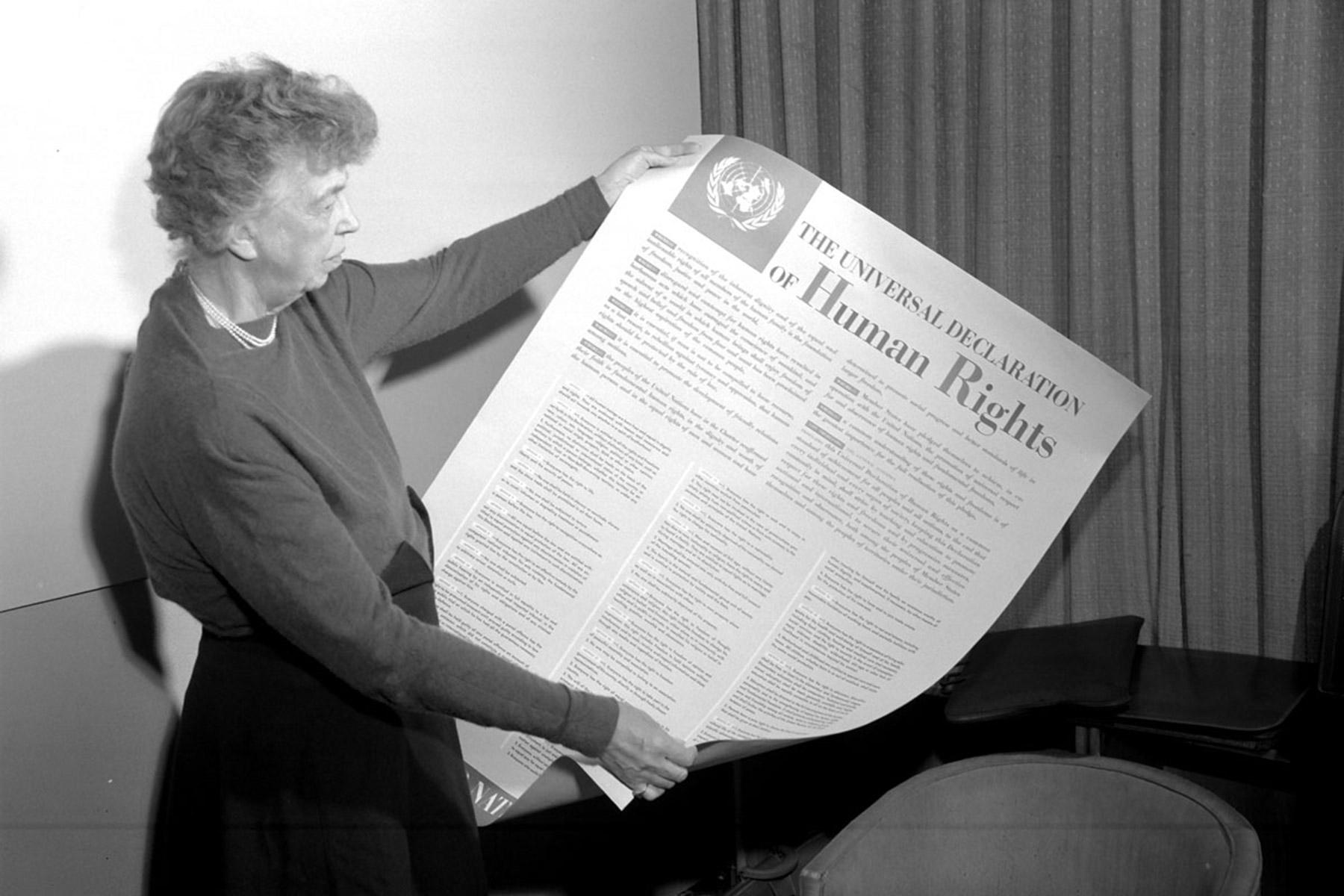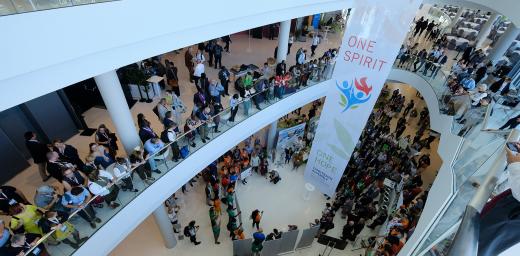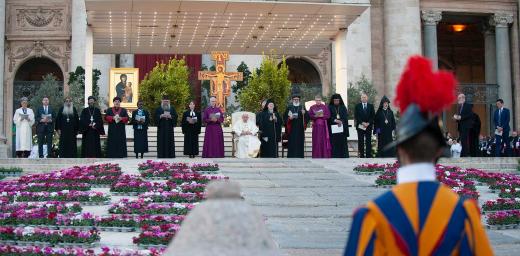At event marking 75th anniversary of Universal Declaration, advocates share ways of putting its principles into practice
(LWI) - During an event to mark the 75th anniversary of the Universal Declaration of Human Rights, the Lutheran World Federation (LWF) General Secretary, Rev. Dr Anne Burghardt reiterated the commitment of the global communion of churches “to advance human dignity and the protection of human rights,” in particular those of the most marginalized individuals and communities.
The Declaration, which enshrines the rights and freedoms of all human beings, was adopted by the United Nations General Assembly on 10 December 1948. Among its authors was Rev. Dr Frederick Nolde, Dean of the Graduate School of the Lutheran Theological Seminary at Philadelphia and a pioneer of the Christian human rights movement over the following decades.
Speaking at a webinar on 11 December, Burghardt recalled Nolde’s legacy, together with the “courageous actions of human rights defenders worldwide, including those within LWF member churches and our ecumenical and interfaith partners,” who have “bravely stood for justice, often at great cost.” She recalled that the Universal Declaration grew out of “the horrors of the Second World War,” serving as a key international legal instrument to remind governments of their obligations to protect and uphold the human rights of all their citizens.
From grass roots to national and global levels
Representatives of member churches and LWF country programs in different parts of the globe shared ways in which the human rights framework serves to advance the work they do within marginalized communities today. Dr Bijaya Bajracharya, director of LWF Nepal, shared examples of advocacy on behalf of Dalits and others still suffering from the effects of the bonded labor system which has been outlawed by the government. She highlighted the success of LWF’s transformative empowerment program, which has enabled over 225 people from lower caste groups to become active in local elections and other decision-making processes.
Speaking from an African perspective, Florence Bua, a South Sudanese refugee serving as secretary of the Women’s Affairs Refugee Welfare Council in Uganda, said knowledge and understanding of human rights has empowered her to voice her opinions and to obtain vital services, such as health care and education. She has also been able to obtain the necessary documents required to travel outside the country, whereas before she believed she was restricted, as a refugee, to living inside the resettlement camp.
Human rights are core to our understanding of what it is to be Christian and to be Lutheran.
Rev. Amy Reumann, senior director of advocacy for the Evangelical Lutheran Church in America
Rev. Amy Reumann, senior director of advocacy for the Evangelical Lutheran Church in America, spoke of human rights as “core to our understanding of what it is to be Christian and to be Lutheran.” She also spoke of the “special invitation or mandate” for Lutherans in America to build on Dr Nolde’s legacy in promoting human rights and holding the nation’s leaders accountable to the commitments they have made.
Syamtel Madjadoum, technical advocacy advisor for LWF Chad and project manager for its rights-based approach, shared examples of raising the needs of local communities in his country to international level through the United Nations’ Universal Periodic Review mechanism. He spoke of the different issues which have been brought to the attention of the government through this process, including the rights of women and children, the continuing practice of female genital mutilation, the rights of refugees, as well as the civil and political rights of people in his country.
A faith imperative, part of our DNA
Members of LWF Action for Justice team and representatives of the Lutheran Office for World Community (LOWC) in New York described the different ways in which they support the work of member churches and country programs, underlining the long-standing commitment that LWF has had to the human rights agenda since the days of the Universal Declaration. Isaiah Toroitich, LWF’s Head of Global Advocacy, stressed that human rights are “a faith imperative, part of our DNA,” implemented through the priorities of gender justice, peace and reconciliation, combating the climate crisis, or working with the displaced and people living with disabilities.
Christine Mangale, director of the Lutheran Office for World Community, spoke about the way her office can facilitate spaces for human rights advocates in different countries to meet and engage with government delegations at the United Nations in New York. She said that “we are marking this anniversary under difficult conditions,” with shrinking space for civil society voices and a backlash against human rights in many areas. She also pointed out that recent statistics reveal that only 15 percent of the Sustainable Development Goals targets are on track to be reached by the end of the year, making the work more urgent than ever before.
In conclusion, Naomi Mbise, a young Tanzanian currently working at LOWC, asked “what will the next 75 years look like?” She expressed the hope that “we won’t become numb to the human rights violations” that continue to plague people in countries across the globe. Instead, she said, “we need courage” and “intentionality to align our approaches to the ever-changing needs of the communities we serve.”






